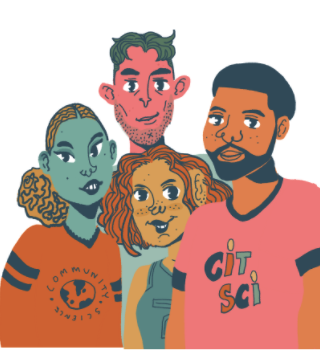This ICBO paper is also available to the public for download via this link. The ICBOs have been working on community-led De-Colonial Participatory Action Research for eight years now under two NSF AISL awards: (DRL #1422022) Collaborative Research: Examining Contextual Factors that Influence the Implementation of Projects Designed to Improve Cultural Diversity in […]
Equity
Equity and equality are two terms that are used frequently in justice, equity, inclusion, and diversity work. Both of these terms revolve around individual and population needs and the resources that meet those needs. Although they may sound similar there are some key differences that are important to keep in […]
Noise pollution goes beyond just what we hear everyday when we are walking down the street. It can help maintain systems of oppression like gentrification and cause low-income people of color to face the risks of losing their home, businesses, and culture. Gentrification is a process in which there is […]
The Noise Project brings together the goals of furthering science and furthering equity. Our team carries out Community-based Participatory Research (CBPR), which is a method of research conducted at the community level by engaging with individuals and organizations in the community to further science. Traditionally, the focus of CBPR has […]
Where you live is often determined by your socioeconomic status and/or race. In the United States, people of color have been subjected to years of racial segregation. Policies such as “redlining” ensured that black people would only have access to dense, low-income areas (red zones) while white people (who were […]
There are very few people in the world who do not have any form of privilege. Sometimes it may not feel like you have privilege or power/advantages, but whether or not you feel it, you benefit from it while others don’t. So, it is important to recognize the privilege you […]
For over a year, members of the NOISE Project have been coding responses from interviews that were conducted over the summer of 2019. During the coding process, we scan interview answers for their main ideas, and then assign them words or phrases that capture these themes. These words and phrases […]
Unbeknownst, noise pollution and gentrification are more closely related than you may think. Noise pollution can help maintain gentrification, a system of oppression, and gentrification can help increase noise pollution. Gentrification is a process in which there is an increase of middle-class or wealthy people who start businesses, renovate and […]
The Noise Project aims to enhance equity in collaborations between science institutions and communities. Equity is so important to our collaboration that we include it in our co-created Community Review Board Agreement of non-negotiables that guide research and evaluation in our communities. In order for researchers to partner with community […]
The Noise project aims to bridge the disconnect with scientific institutions and communities. It attempts to collaborate in an equitable, egalitarian, respectful way. The Noise project wants to create equitable community research. Community – People with shared experiences, sense of history, and belonging. Typically, institutions working with communities find it difficult to […]
Gender inequality occurs when someone is treated or perceived differently because of their gender. For example, many women face added barriers in the workplace due to their gender. These barriers include anything from subtle acts of sexism to discrimination. For example, women will be more likely to be spoken over […]
For the past year, members of the NOISE Project have been coding responses from interviews that were conducted over the summer of 2019. During the coding process, we scan interview answers for their main ideas, and then assign them words or phrases that capture these themes. These words and phrases […]











